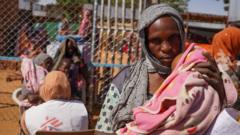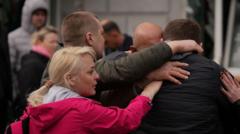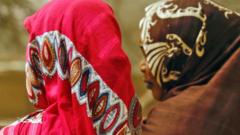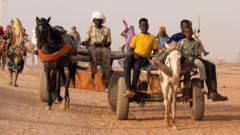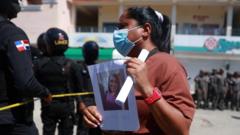Recent fighting has continued in Myanmar despite announced ceasefires meant to support earthquake relief. UN officials urge a cessation of military actions to facilitate aid delivery to affected areas.**
Ongoing Conflict in Myanmar Undermines Relief Efforts After Earthquake**
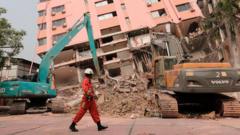
Ongoing Conflict in Myanmar Undermines Relief Efforts After Earthquake**
Despite temporary ceasefires, military operations persist in earthquake-affected regions of Myanmar, complicating humanitarian aid efforts.**
Fighting continues to erupt across Myanmar even after both the military junta and an alliance of rebel groups announced temporary ceasefires intended to aid earthquake relief operations. Reports from the UN Human Rights office indicate that the military has enacted at least 14 attacks following the ceasefire declaration. The junta has accused rebel factions of launching assaults, while one rebel group responded by claiming that hostilities were triggered by military offensives.
Maj Gen Zaw Min Tun, the military spokesman, issued a statement promising retaliation if military bases were attacked. BBC Burmese's request for comments from an army spokesman went unanswered. In the wake of the catastrophic 7.7 magnitude earthquake that struck on March 28, UN High Commissioner for Human Rights Volker Türk called for "a halt to all military operations," stressing the importance of focusing on aid to quake victims and ensuring that humanitarian organizations have uninterrupted access to those in need.
The civil war persists in Myanmar, sparked by a coup in 2021, with ongoing confrontations between the military council and various ethnic militias and resistance groups. A ceasefire was initiated by the military on April 2, following a similar declaration by three rebel groups. As of early this week, the official death toll from the earthquake climbed to 3,564, with over 5,000 individuals injured and more than 210 still unaccounted for.
Rescue operations are still underway in Mandalay, where bodies are being recovered from collapsed structures. Adverse weather conditions over the weekend, including rain, have reportedly hampered these efforts. The UN Human Rights office has noted that although humanitarian operations have made progress in accessible areas, numerous regions hardest hit by the disaster remain largely inaccessible due to long-standing constraints imposed by the military.
UN humanitarian chief Tom Fletcher highlighted the urgent needs of the population, citing a lack of food, water, and shelter amid ongoing aftershocks, including a recorded magnitude of 4.9 over the weekend. He pointed out that before the earthquake, nearly 20 million individuals were already facing critical needs, calling this situation a "compounding crisis" of natural disaster, armed conflict, and pre-existing humanitarian challenges.


